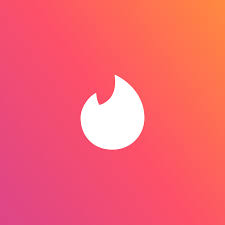About 75 million people have Tinder, 23 million have Hinge and 58 million have Bumble, according to Business of Apps.
Tinder was founded by Sean Rad, Justin Mateen and Johnathan Badeen in 2012. The founders considered this a matchmaking game for people who often didn’t go out.
Hinge was created by Justin McLeod. The app “designed to be deleted,” as the slogan states, gives the person more room to tell others about themselves and filter what they are looking for.
Bumble was released in 2014 by founder Whitney Wolfe Herd as an app for women to make the first move.
These apps create an easy and effective way to connect with others and evoke something known in today’s society as hookup culture, which has become a very common concept.
The Scholarly Community Encyclopedia says this culture is a practice in which two or more people engage in sexual encounters. There is common knowledge that romantic feelings and commitment will not be an outcome. However, not all hookups are classified as one-nightstands some are considered casual hookups meaning two people hookup more than once.
“The idea could be for dating, but recently and with the people around us it’s been used a lot more for hookup culture,” says Durham College student Evan Leslie.
Hookup culture can mean different things to different people. Some say it lacks emotions, while others find you feel emotion, you just don’t act on it.
Describing hookup culture, Durham College student Olivia Meggett said it was “meeting up to hookup and not really caring about the person.”
Many people, including Megget and Leslie, have expressed that hooking up with someone often lacks the depth of getting to know the person, a contrast to what dating apps typically promote.
There are apps that are specifically dedicated to finding people to meet up and hookup with, such as Pure, which is advertised as a positive dating app that targets and normalizes hookups. This app was made in 2014 by two men named Roman Sidorenko and Alexander Kukhtenko and later supported by author and editor Carol Queen.
In college and university, hookup culture has become more prominent as the apps that promote it gain popularity. “By the end of freshman year, most 19-year-olds have made enough mistakes to realize what’s working for them and what’s not,” reports Psychology Today.
In the same study, it was found that some college students do meet people, fall in love and experience heartbreak.
Psychology Today also mentioned that, when looking for someone to hookup with, the new generation has traded going to clubs for online apps.
Alec Iordanou, a Pickering resident, experienced a breakup and turned to dating apps to meet new people. He was open to all possibilities but he still craved something long-term.
“With online dating, you miss the personal connection during a first impression and many view dating apps as being based on physical attraction,” said Acenda. According to Acenda, dating apps have caused users to feel a range of emotions like anxiety, depression and stress.
“My first match I didn’t get a message back and I was really worried, I didn’t do anything yet,” Iordanou said.
Acenda reports that users have suffered from low self-esteem and poor body image due to the way dating apps are set up to interact. This often includes excessive swiping based on appearance.
Dating apps are used to quickly and conveniently find a hookup rather than get to know someone and date. So where will this lack of connection leave us 10 years from now?




